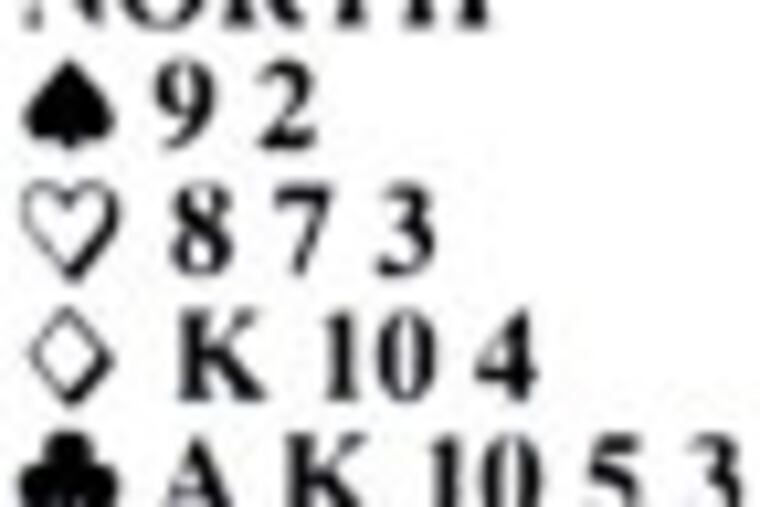Bridge by Frank Stewart
"Expectancy" is a concept that few books treat. It is the average result you will achieve if you play the same deal many times.

"Expectancy" is a concept that few books treat. It is the average result you will achieve if you play the same deal many times.
Not vulnerable at Chicago scoring, suppose you reach four spades, which depends on winning one of two finesses. You will be plus 420 half of the time, minus 50 or plus 450 the rest. Your expectancy is 1,240 divided by four: 310 points. If you stop at three spades, your expectancy will be about 170 points, so it will pay in the long run to bid game.
Expectancy is hard to judge at the table - maybe even with all four hands in view. I'll let you choose in today's deal: You can play four spades doubled as East-West, down one for minus 100, or you can sit East-West and try to beat South's four hearts, with the chance of being plus 50 or minus 420. You pick.
West leads the queen of spades against four hearts, and East overtakes with the king and shifts to his singleton club. If South wins and leads a trump, East wins, leads a spade to West and ruffs the club return for down one.
South sees what East has in mind: South takes the A-K of diamonds and leads dummy's ten, and when East covers, South discards his last spade: a loser on a loser.
West can no longer get in, and South seems to be safe, but East doesn't give up. He leads a fourth diamond, and South must ruff high in his hand. When he continues with a high trump, East takes his ace and leads a fifth diamond. And whether South ruffs high or low, West scores his nine of trumps.
Did you elect to defend?